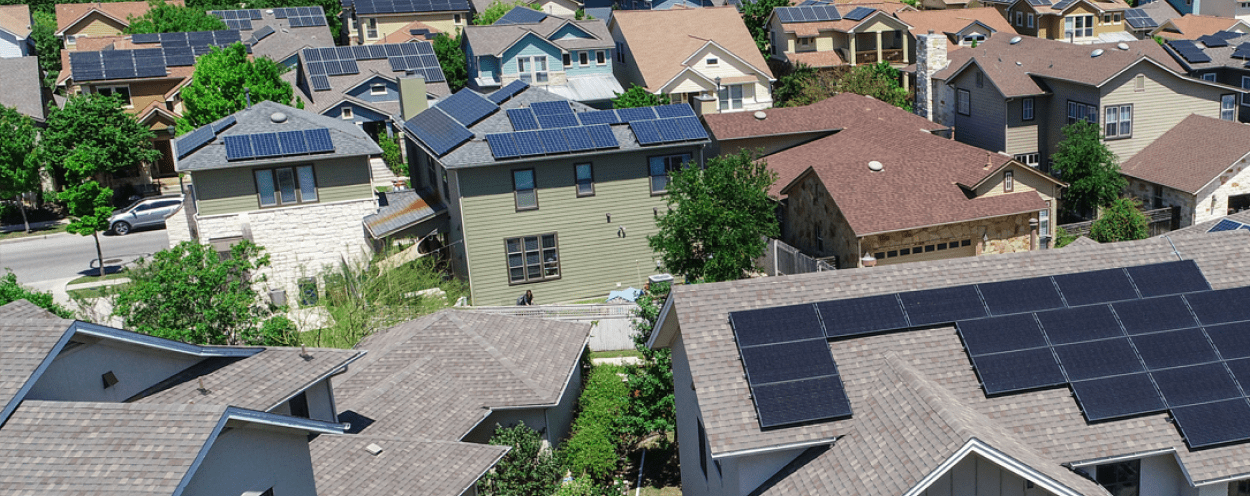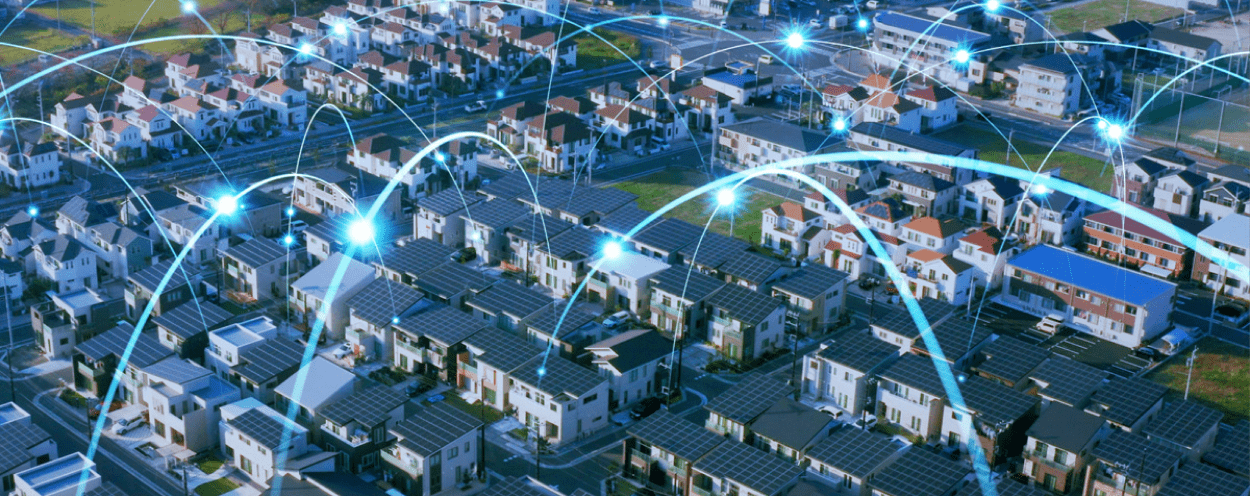

The same policies that helped the U.S. reach 2M+ solar installations are under attack.
The early 1980s were known for big hair, the first space shuttle launch, and the birth of net metering. While fashion trends have come and gone, and blasting into space is now a form of billionaire entertainment, net metering has withstood the test of time — and remains a hot topic more than 30 years later.
Minnesota passed the first net metering law in 1983, allowing customers with solar electric panels to not only use the energy their system generated, but to receive a credit at the applicable retail rate on their energy bill for any excess generation that is exported to the grid.*
Net Metering Has Sparked Widespread Solar Adoption

Today, net metering is one of the most successful solar incentives in America. With policies in more than 40 states and U.S. territories, net metering has driven the expansion of residential solar by enabling homeowners to cut down on their energy costs even further to make their home solar system worth the investment.*
In fact, net metering policies helped the U.S. achieve 2 million+ residential solar installations by 2019 — a figure that industry leaders expect will double by 2023.*
Net Energy Metering Actually Helps Stabilize the Grid
Aside from lowering a household’s electricity costs, net metering helps reduce strain on the power grid while making more clean energy available to all.

Here’s how:
Rooftop solar is a form of distributed energy generation (DER), meaning a way of producing power at or near the point of use. When your home solar system feeds excess energy back to the grid, you’re making clean power available for all electricity customers. Distributed systems are often connected to a utility’s lower-voltage distribution lines. With less distance to travel, DER systems reduce (and often eliminate) the energy lost on long transmission lines. The result is clean, reliable power for any household, which is particularly helpful during high-demand hours.*
You may have heard critics claim that DER systems like solar threaten to overwhelm the grid, because traditional systems weren’t designed for two-way energy flows. That may have been the case years ago, on days when the grid was already vulnerable (think hot summer days and intense storms). But today, thanks to advances in technology and battery storage, the grid is better able to accommodate solar by doing things power plants can’t – like storing energy and economizing its use.*
Why Net Metering is Under Attack

Despite its benefits, net metering presents challenges to the traditional utility model by changing the relationship between utilities and electricity customers. Through net metering, homeowners with solar both produce and consume energy (and they consume much less). The rise of this new “prosumer” is giving Americans greater energy choices and sparking greater competition and innovation in the energy sector.* It’s a win for everyone, except investor-owned utilities.
Facing reduced sales due to the growth of home solar, large utility companies argue that homeowners with solar avoid paying their “fair share” of operating and maintaining the grid. These charges typically appear on electricity bills as delivery charges and consumption charges. When there’s no consumption (if you’re using solar), there are no delivery charges. So, what’s truly to blame for rate increases? There are a number of factors, from the rising price of natural gas to grid upgrades to energy demand on the wholesale market.
In fact, cost-benefit analyses conducted in different states consistently agree that the overall benefit to all utility customers outweighs the cost of net metering to large utility companies.
For instance, the Maine Public Utilities Commission conducted a study on the value of distributed solar and found that:
Solar energy provides a public benefit for all by lowering electricity prices due to displacing more expensive power sources. It also reduces air and climate pollution, decreases costs for the electric grid system, lowers the need to build more fossil-fuel power plants to meet peak demand, stabilizes prices, and promotes energy security. These avoided costs represent a net benefit for non-solar ratepayers.*
But that doesn’t stop utility lobbyists from fighting this solar-friendly policy. After nearly two years of heated discussions, the California Public Utilities Commission (CPUC) in December of 2022 voted to adopt NEM 3.0, which favors big utilities. While the changes aim to modernize the grid, they do so at the expense of rooftop solar. California's new net billing model devalues exported solar power by 75%, making panels economically practical only when a battery is added or the system size is cut in half. Ready more about NEM 3.0 here.
On the other coast, Florida Light & Power, the biggest power company in America, continues pushing for policy change. In a win for the solar industry, Florida Gov. Ron DeSantis vetoed a bill that would have authorized public utilities like FL&P to impose additional charges on solar customers to recover lost revenue. But the fight isn't over.
No matter where you live, there may be a utility in your state that wants to gut net metering. Remember, utilities make money from their assets: centralized power plants, substations, miles-long transmission lines. They’re not making money off your rooftop solar system.
How to Protect Yourself Against Changes to Net Metering Regulation

If you own your home and you’ve been considering rooftop solar, the time to act is now. The sooner you install a home solar system, the better your chances of benefitting from current net metering policies in your state. If you haven’t installed solar yet, you may want to opt for solar + storage. When you install a solar battery, you can save some of the energy your panels produce during the day and use it when the sun isn’t shining — like at night.
If you don’t have a battery, you’re feeding energy back to the grid during the day, and then taking power back from the grid at night. By investing in battery backup, you can take your utility out of the equation, and don’t have to worry about net metering at all. You’ll be the sole power producer and sole power consumer. And anytime there’s a blackout, your house will be the one with the lights on, the fridge running and the well water flowing.*
If you already have solar panels but no battery, you can still add battery backup separately. At Sunnova, we can help you find the right battery to pair with any solar system, and help you determine how many batteries you need to maintain a reliable source of clean power. Net metering changes are coming. Protect your home and your power from lobbyists and legislators — and enjoy the freedom to live life uninterrupted.





